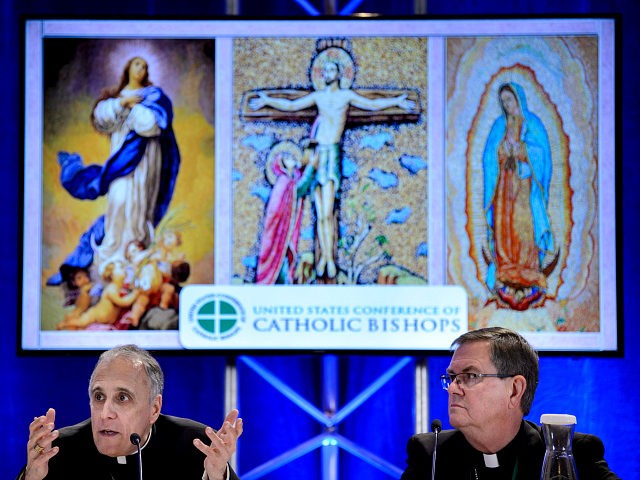Pope Francis has temporarily suspended efforts by the United States bishops to address the issue of clerical sex abuse, ordering them to wait until he can meet with them in February together with the presidents of other national bishops’ conferences from around the world.
The U.S. bishops are currently gathered in Baltimore, Maryland, for their annual fall meeting, which was to focus on dealing with the sex abuse crisis. During the opening session of the meeting Monday morning, Cardinal Daniel DiNardo, the president of the bishops’ conference (USCCB), informed the assembly that he had been contacted by the Holy See on Sunday afternoon with instructions not to move forward with a vote on several concrete measures to respond to the abuse crisis.
On announcing the news, Cardinal DiNardo expressed his “disappointment” with the decision. Since last August, DiNardo has been insisting that the Vatican initiate a formal investigation into the case of Cardinal Theodore McCarrick’s serial homosexual abuse, a request that was ultimately denied after DiNardo traveled to Rome to present his petition to Pope Francis.
“At the insistence of the Holy See, we will not be voting on the two action items in our docket regarding the abuse crisis,” DiNardo said Monday.
“We are not, ourselves, happy about this,” DiNardo said during a press conference. “We have been working hard to get to the action stage, and we’ll do it, but we have to get past this bump in the road.”
The measures proposed by the USCCB included a code of conduct for bishops, the creation of a lay commission to address the abuse issue and the McCarrick case, a third-party hotline to report bishops accused of abuse or mishandling of abuse cases, and “protocols for bishops resigned or removed because of abuse.”
Pope Francis had initially suggested that the bishops suspend their fall meeting altogether, replacing it with a weeklong silent prayer retreat. The bishops opted to continue forward with the meeting, including days reserved for prayer as well.
In explaining the pope’s decision, the Vatican ambassador to the United States, Archbishop Christophe Pierre, said that Francis is concerned about “communion,” wanting the whole Church to move together rather than having national bishops’ conferences make their own policies.
Oddly, Pope Francis has often spoken of the need for decentralization, encouraging local churches to take more initiative in addressing pastoral issues because, in many areas of church life, one size does not fit all. In dealing with clerical sex abuse, however, this is apparently not the case.
When asked about this apparent contradiction, Cardinal DiNardo said it was “quizzical.”
In August, a former Vatican nuncio to the United States accused a number of high-ranking prelates — including the pope himself — of culpable mishandling of the McCarrick case, declaring that Francis had known about McCarrick’s crimes and sanctions imposed on him by Pope Benedict XVI and yet reinstated him to a position of influence in the Vatican.
The pope has refused to confirm or deny the allegations made in the report, including the question of when he learned of McCarrick’s history of abuse.
Pope Francis went on to call out the former nuncio, Archbishop Carlo Maria Viganò, comparing him to Satan. Days later, the pope said that pastors accused of misconduct are like Jesus on Good Friday, who responded with silence to the accusations laid against him.
Anne Barrett Doyle, co-director of BishopAccountability.org, called the last-minute order from the Vatican “truly incredible.”
“What we see here is the Vatican again trying to suppress even modest progress by the U.S. bishops,” said Doyle. “We’re seeing where the problem lies, which is with the Vatican.”
“The outcome of this meeting, at best, was going to be tepid and ineffectual, but now it’s actually going to be completely without substance,” she said.
Follow Thomas D. Williams on Twitter Follow @tdwilliamsrome.

COMMENTS
Please let us know if you're having issues with commenting.